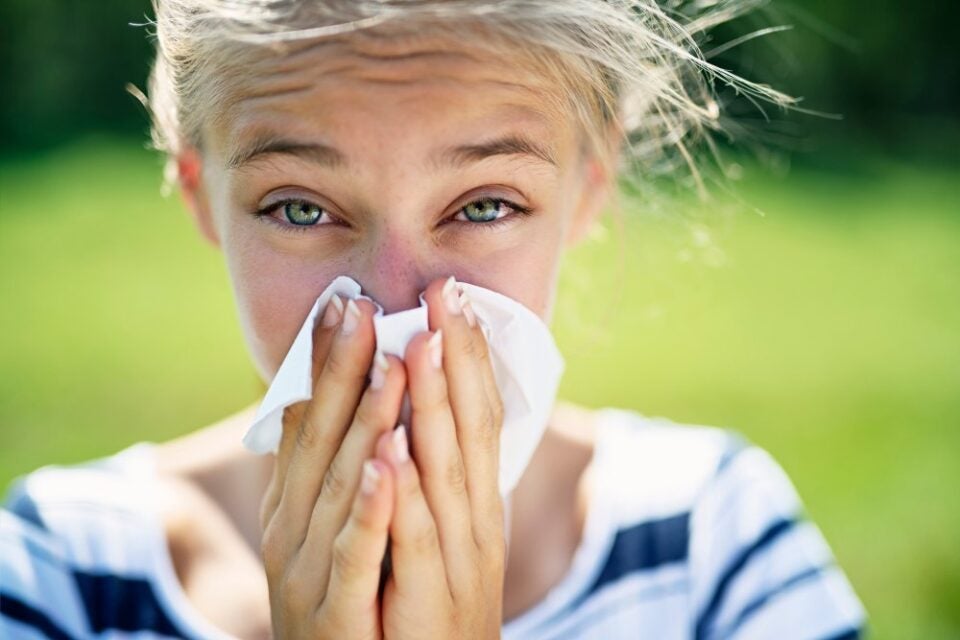Nasal Allergy
Nasal Allergy Treatment in Jupiter, FL
Nasal allergies can be challenging and uncomfortable. Ensuring you get customized allergy treatments for your nasal allergies is vital. At Jupiter Breathe Free, we provide professional nasal allergy treatments in Jupiter, FL. You can trust us to determine the root cause of your nasal allergies and to develop a treatment plan tailored to your needs. Contact us today to learn more about sinus and allergy conditions.

What Is a Nasal Allergy?
Rhinitis, or nasal allergies, is characterized by nasal passage inflammation. Nasal allergies are the body’s adverse reaction to substances in the air that they deem invaders. Some of these substances include mold, dust mites, pet dander, and pollen. If you’re allergic to a substance, the body sends chemicals to fight it off. This histamine sets off the symptoms, causing you to feel congested and itchy.
What Causes Rhinitis?
The most common cause of allergies is an allergen or irritant. You can be allergic to one or dozens of substances. Some people only suffer from allergies seasonally, while others suffer throughout the year.
Symptoms of Nasal Allergies
It’s important to stay aware of the way allergens impact your body. You may notice nasal allergy symptoms once you come into contact with an allergen trigger. Some of the most common symptoms of nasal allergies include:
- Runny nose
- Watery eyes
- Itchy nose, eyes, mouth, throat, or skin
- Problems with smell
- Sneezing
- Postnasal drip
Types of Rhinitis
The best way to treat your allergy problems is to know the root of the issue. We offer allergy testing to determine your allergies and choose the best allergy treatment. The types of rhinitis include:
Allergic rhinitis is triggered by allergens that cause allergy symptoms.
Seasonal allergic rhinitis, also known as "hay fever," is a reaction to pollen from weeds, grasses, and trees.
Perennial allergic rhinitis is brought on by allergens throughout the year from mold, animal dander, cockroach debris, and dust mites.
Non-allergen factors such as smoke, strong odors, hormonal changes, overuse of nasal sprays, and certain medications can trigger non-allergic rhinitis.
Infectious rhinitis is the common cold caused by a cold virus that infects the nose and sinus cavities.
Allergic Rhinitis Treatment
Effectively managing your symptoms involves avoiding as many of the allergens that trigger your condition as possible. While avoiding all pollen may not be feasible, you can take numerous measures to significantly lessen your exposure. Allergic rhinitis can be treated with medication, depending on the severity of your symptoms, your age, and if you have any other medical conditions. For those with mild symptoms, a nasal wash can aid in clearing mucus from your nasal passage. Other potential allergy treatments for allergic rhinitis include:

- Antihistamines: These nasal allergy medications are effective at relieving allergy symptoms and are typically used for periodic or short-term symptoms.
- Corticosteroids: Nasal spray for allergies is highly effective at alleviating symptoms of allergic rhinitis, especially when used consistently. They are also advantageous for short-term and intermittent use.
- Decongestants: Decongestants can be especially helpful in relieving nasal obstruction symptoms. Nasal spray decongestants are not recommended for use longer than three days.
- Medical Treatments: Leukotriene inhibitors are prescription drugs that work by blocking leukotrienes, which are chemicals that the body releases in response to an allergen.
- Immunotherapy: This therapy involves regular injections of the allergen, with each dosage slightly larger than the previous, until a dosage that effectively controls the symptoms is reached.
- Sublingual Immunotherapy (SLIT): In lieu of injections, allergy drops placed under the tongue may be used to manage certain allergies, such as grass or ragweed, when appropriate.
Contact Jupiter Breathe Free Today
Jupiter Breathe Free is here to support you in reducing the impact of allergies on your quality of life. We offer comprehensive allergy services to help you feel your best. Our team will find the cause of your allergy problems and offer a customized treatment plan. Recognized for our expertise in ENT and allergy care, we proudly serve patients across the Jupiter area with personalized, high-level care. Contact us today to schedule a nasal allergy consultation.
